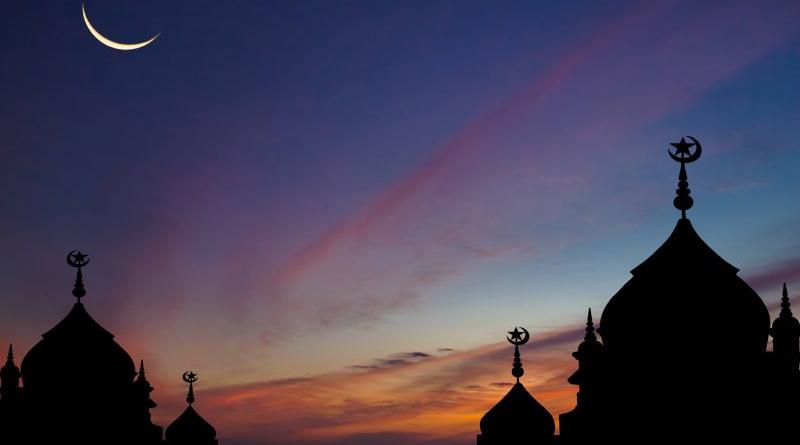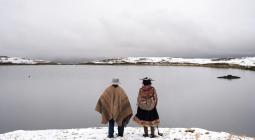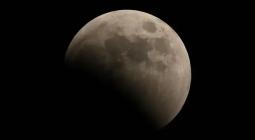This Eid might be last before climate crisis permanently alters Muslim World

The impending doom of climate change is expected to displace over 1.2 billion individuals within the next three decades, most of whom will originate from the Islamic world, which will become practically uninhabitable, writes Ibrahim Özdemir.
Ibrahim Özdemir is an Islamic ecologist and consultant to the United Nations Environment Program (UNEP) since 2015. He is a professor of philosophy and ecology at Üsküdar University and was previously director-general at the department of foreign affairs in the Turkish Ministry of Education. Presently, he is visiting professor at Clark University, Worcester, MA, where he teaches environmental ethics.
With just a day left before World Earth Day, more than 1.6 billion followers of Islam are swarming the streets, town squares, and city centres across the Islamic world to revel in Eid festivities after a month of fasting for Ramadan. However, as the global climate crisis intensifies, it begs the question – will the age-old customs that come with this significant day become a thing of the past?
Only a year ago, cities like Baghdad, Kuwait City, Riyadh, and Lahore were among the world’s hottest places. At present, Bangladesh, a nation of nearly 170 million Muslims, is experiencing an unparalleled heatwave that is suffocating the nation. As Eid approaches, the government is debating whether to declare its first-ever temperature emergency as roads melt under the blazing heat.
This is a significant issue. Eid is a crucial aspect of Muslim identity, similar to Christmas for Christians. It is a fundamental custom of the Islamic faith that could be permanently altered by water and food shortages, calamitous weather, and consequential displacement.
The impending doom of climate change is expected to displace over 1.2 billion individuals within the next three decades. Sadly, most refugees will originate from the Islamic world, becoming practically uninhabitable. This crisis will have devastating effects, breaking apart families and communities and creating substantial hurdles for host nations.
It is paramount that this dire reality be conveyed to millions of Muslims and Islamic religious leaders immediately. Unlike Western politicians, these religious leaders hold substantial sway over public opinion. Their influence could provide the Islamic world with its only hope of averting catastrophe.
In the Global South, faith plays a critical role in the daily lives of billions of people. For this reason, the involvement of religious leaders, from any faith, in the fight against climate change could be a game-changer. These leaders hold power to galvanise their followers into action and make a real difference in saving our planet.
Apart from highlighting the link between Islamic scripture and environmental conservation, there is much more that Islamic faith leaders can do this Eid.
A great starting point would be to launch tree-planting initiatives on a massive scale. By planting trees in densely populated cities, the number of lives lost during heatwaves could be significantly reduced, and deadly air quality could be improved. In rural areas, tree planting could help protect against life-threatening weather events such as wildfires, floods, and droughts that lead to migration, good scarcity, and conflict. In addition to tree planting, Muslim countries must follow the West’s lead and invest heavily in renewable energy sources.
Faith leaders must acquire greater climate literacy to fully comprehend the pressing urgency of climate action. Without this crucial understanding, establishing a genuine mainstream culture of climate action across many Muslim countries would be an uphill battle. Encouragingly, initiatives are starting to emerge in this arena, but we require more comprehensive efforts.
One prominent religious figure in the Islamic world, Dr Muhammad Abdulkarim Al Issa, who oversees the world’s biggest Islamic NGO, the Muslim World League, established a faith-based climate NGO called Faith For Our Planet (FFOP). This organisation provides capacity building to empower faith leaders worldwide to become climate leaders. Additionally, FFOP recognises another area in dire need of support – youth.
Young faith leaders have a crucial role in the global climate action movement. Their knowledge of the climate crisis, combined with their deep understanding of scripture and skilful use of social media, gives them an outsized influence in rallying people of faith towards acting on climate change.
Recognising this potential, Duke University in the US has partnered with Faith For Our Planet (FFOP) to launch a fellowship program. The initiative aims to train and fund young faith and climate leaders who can mobilise communities to fight climate change. The program has already supported projects across the Muslim world, inspiring new and old generations to embrace climate action through pillars of faith.
An example of those pillars is Zakat, an obligatory charitable tax that generates over $1 trillion every Eid to address poverty alleviation. However, Zakat can also be directed towards mitigating future drivers of poverty, such as building schools. But climate change is the most significant future driver of poverty, and if left unchecked, it will exacerbate every category of charity that Zakat is directed towards.
Islamic scholars and Imams must use their platform to urge the payment of Zakat this Eid towards climate funding, including for the victims of floods in Sudan and Pakistan and the earthquakes in Turkey and Syria, but also for climate adaptation, resiliency, and pre-emption projects across the Islamic world. With just a fraction of Zakat funds, the funding shortfall at COP could even be covered.
The recent IPCC report delivered a stark warning that we have only one opportunity to save the planet. With Muslims accounting for one-fifth of the global population, we must contribute at least that proportion towards addressing the world’s challenges.
In the end, it is a moral obligation for Muslim leaders to mobilise their followers to protect Eid and other Islamic customs and the entire Islamic world.
If not, Eid will never look the same.
cover photo: Eid festivities could be permanently altered by water and food shortages, calamitous weather, and the consequential displacement, writes Ibrahim Özdemir






